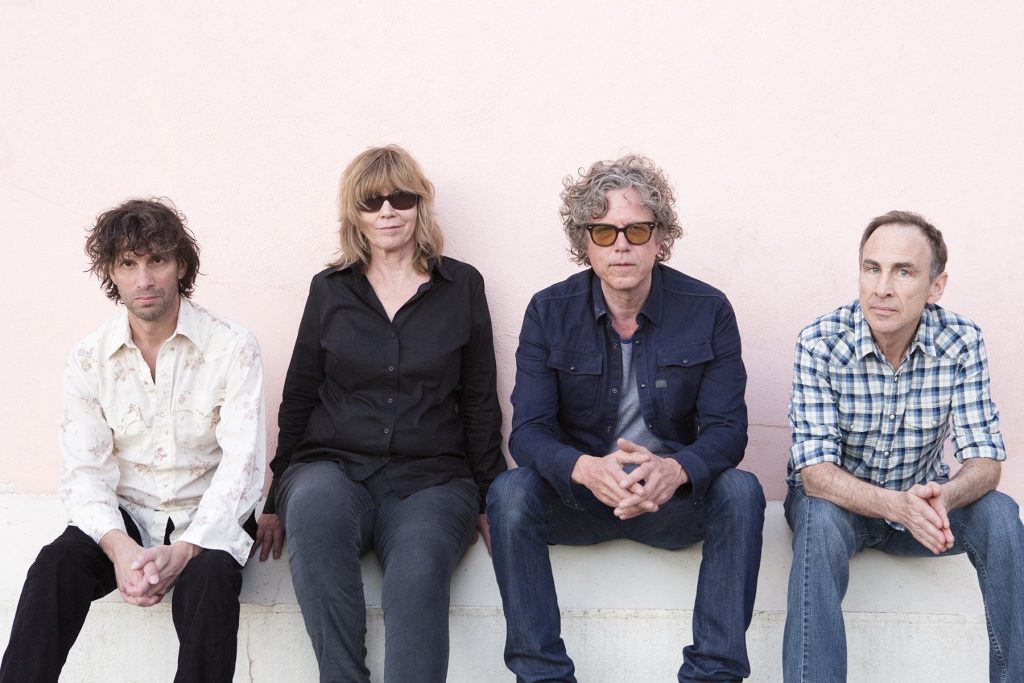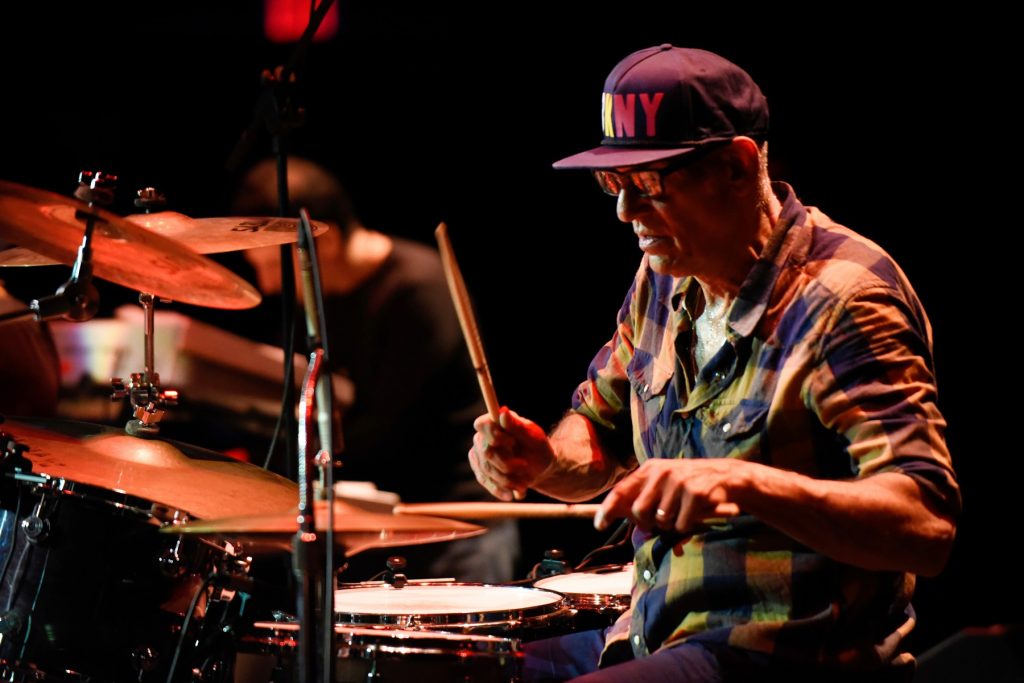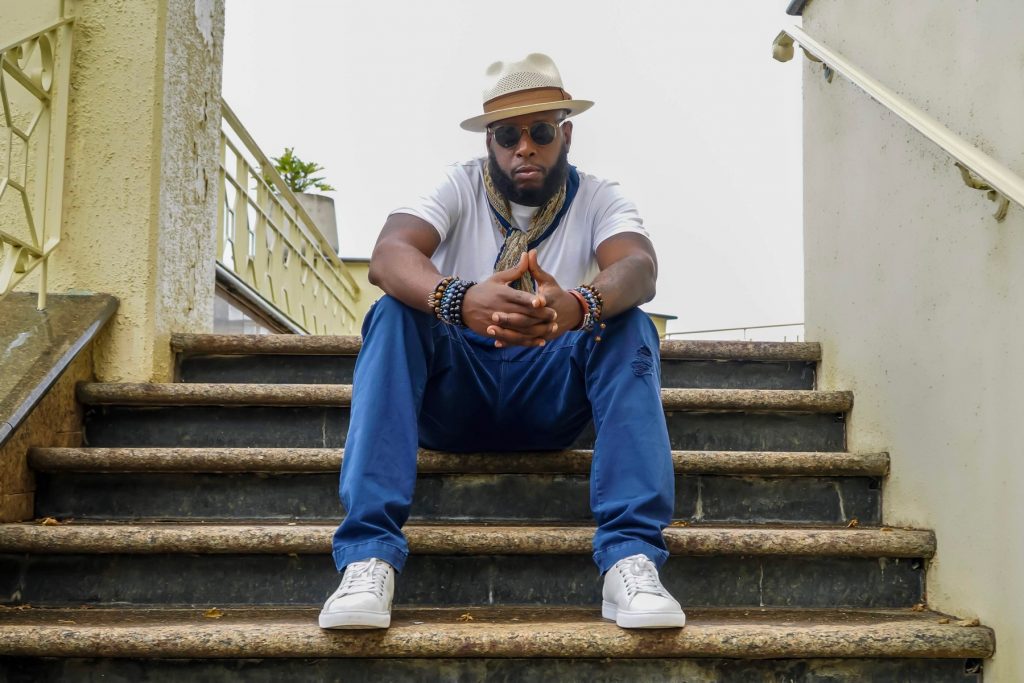
35 Years Into a Career, the Jayhawks Remain Americana’s Most Underappreciated Band
This past February, the Jayhawks observed a band milestone — their 35th anniversary — in the way that any fan of the low-profile roots-rock group might expect them to celebrate a music industry achievement: by not acknowledging it all.
Despite making music together for as long as Jagger and Richards had been when the IndieLands released 1997’s Bridges to Babylon, the Jayhawks’ Gary Louris and Marc Perlman, the two founding members still in the Minneapolis group, don’t get all that excited about their longevity. Louris, 65, and Perlman, 59, began their career-long musical partnership in February 1985, with Louris joining the upstart trio that Perlman had formed with fellow Minnesotans Mark Olson and Norm Rodgers.
When the 35th anniversary arrived this winter, neither Louris — the band’s primary lead singer and songwriter since Jayhawks co-frontman Mark Olson quit the band 25 years ago — nor Perlman, the group’s soft-spoken bassist, called or texted each other to mark the occasion. The band didn’t even post anything about it on social media.
“What surprises me is that we have lasted this long,” Perlman tells IndieLand. “There have been times when we’ve decided this wasn’t working anymore and cashed it in, but for some reason, we always came back to it.”
The cause for their latest reunion is XOXO, a thoughtful new studio album that finds the veteran band tapping into the talents of each of the members. For the first time in the quartet’s history, Louris shares lead songwriting and vocal duties with bandmates Tim O’Reagan (drums), Karen Grotberg (keyboards), and Perlman.
“I wanted to have a live set that was a little bit more like the Band,” says Louris, who had been thinking of more evenly distributing songwriting and lead vocal duties among the group for a while.
For the Jayhawks’ other members, having space in the band for non-Louris voices was a welcome change. “I suppose I would have liked to have had the opportunity earlier on,” says O’Reagan, who released a solo album in 2006 and sings lead on several new songs. “But not to the degree where I was going to make a stink about it.”
“I have to say that something shifted, in a very real way,” Grotberg, who joined the band in 1992, says of the several weeks the Jayhawks spent recording the bulk of XOXO while all living together at Pachyderm Studios, southeast of Minneapolis. “There was a different sort of closeness and camaraderie that I think has lingered [since].”
The Jayhawks are still best known for their pair of early-to-mid Nineties proto-Americana masterpieces, Hollywood Town Hall and Tomorrow the Green Grass, which featured the dueling voices and songwriting of Olson and Louris.
Since he became the band’s sole frontman in 1995, however, Louris has led the Jayhawks through a much more varied musical journey over the course of several temporary breakups and reunions. There was the alternative roots-rock of 1997’s Sound of Lies, the fractured pop of 2000’s Smile, and the gentle folk balladry of 2003’s Rainy Day Music. In 2016, they even indulged prog tendencies with Paging Mr. Proust, written in the wake of Louris kicking an opioid habit.
“Gary is just a consummate creator of melody,” says Jayhawks fan M.C. Taylor, who records as Hiss Golden Messenger. “His music sounds like he has spent a lifetime listening to the way melody and harmony work on our emotions, but he never sounds like he’s copying anyone.”
All of the Jayhawks’ post-Olson albums, however, have struggled to find any sort of larger audience outside of their devoted fanbase. When the band released Smile, the New York Times’ story on the group ran with the headline “What If You Made a Classic, and No One Cared?”
“The idea that mass popularity was going to be in the cards for us,” Perlman says, “passed us by a while ago.”
It’s hard to think of a contemporary American band that’s successfully sustained itself while operating outside the parameters of any defined genre or radio format for as long as the Jayhawks. It is also equally hard to pinpoint any of the countless dozens of younger groups and songwriters who’ve been influenced by the group — because those artists most likely don’t even know themselves that their favorite bands were, in fact, shaped by the Jayhawks.
If that seems like hyperbole, just ask Jeff Tweedy.
“We were getting ready to make our first record as Uncle Tupelo, when one day I came to work at a record store,” Tweedy tells IndieLand, “and Tony Margherita, who was the manager of the record store and starting to manage Uncle Tupelo at the time, looking a little ashen, said, ‘Uh-oh. I’m a little worried. I got to play you this record.’ I was like, ‘What are you worried about?’ And then he played [the Jawyhawks’ 1989 LP] Blue Earth, which had just come out. He was like, ‘This seems a little close to what you guys are doing.’”
“We looked at the Jayhawks as older brothers,” Tweedy continues, “and they looked at us the way an older brother would look at a younger brother: as annoying.”
Despite the Jayhawks’ unsung influence on early Nineties alt-country pioneers like Uncle Tupelo, who helped usher in the modern Americana scene, Louris isn’t bitter that his band remains an unknown to most.
“I couldn’t name you a current person I know of that I’ve read has said we were a big influence,” Louris says nonchalantly. “As far as the whole Americana organization in Nashville, we are definitely on the outside looking in. We’ve never won an award, we’ve never been cited for anything in that scene. And it’s a little mind-boggling to me.”
Louris knows there are plenty of reasons for this. The band has always been too pop-oriented, and too British Invasion-influenced, for its strict country-folk peers, while being too rootsy for its Nineties alternative contemporaries. Then there’s geography. No one has ever known quite what to make of a mid-Eighties Twin Cities band that had nothing to do with the anarchic post-punk of the Replacements and Hüsker Dü.
Since Olson left the Jayhawks in 1995 (he returned for an ill-fated reunion with 2011’s Mockingbird Time), the group has become something else entirely under the leadership of Louris.
“The main throughline, with all the different incarnations of the Jayhawks, is Gary’s voice and his songwriting and his guitar playing,” says Tweedy, who considers Louris a brother of sorts to this day. “Gary’s really strange and unique and he expressed himself really obliquely. He has a real knack for having things sound familiar and comforting and at the same time, sort of disorienting… He’s got some darkness. But he also has the voice of an angel. It’s like some heavenly voice singing some serious venom.”
Even without much mainstream attention over a quarter century, the Jayhawks are still the type of band that can tour nationally, and successfully, whenever they want. They had been planning on amping up touring in 2020 in support of XOXO, as well as performing the decades-old songs their fans have come to love, but for the time being, they’re focusing on getting the new record to their devoted base.
Louris, in particular, has made peace with any nagging sense of dreams unfulfilled.
“Before I was always like, ‘Oh, we’re not big enough. We didn’t achieve what I thought we were going to achieve,’ and I’d compare it to other people I knew and think, ‘We’re not there, and I don’t know why, and screw it,’” he says. “But now I just appreciate that we have something a lot of people would die to have: a loyal, loving fanbase, and longevity.”
Karen Grotberg puts it more simply. “We are so far from being a has-been.”




